Black Mirror: Bandersnatch is an experiment on us – Netflix explain why interactive episode is the grimmest yet
The viewer decides what happens next in the newest episode of Charlie's Brooker's dystopian series. But their reaction may help shape the future of interactive TV, finds David Streitfeld
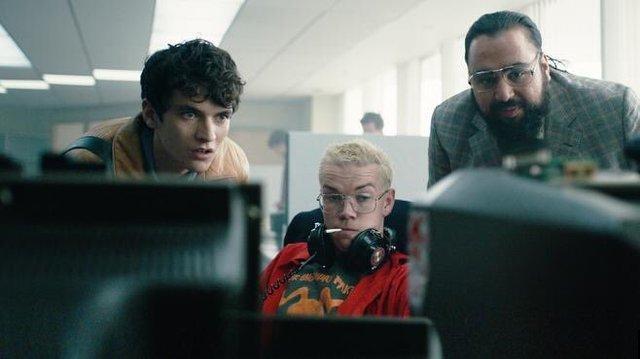
Your support helps us to tell the story
From reproductive rights to climate change to Big Tech, The Independent is on the ground when the story is developing. Whether it's investigating the financials of Elon Musk's pro-Trump PAC or producing our latest documentary, 'The A Word', which shines a light on the American women fighting for reproductive rights, we know how important it is to parse out the facts from the messaging.
At such a critical moment in US history, we need reporters on the ground. Your donation allows us to keep sending journalists to speak to both sides of the story.
The Independent is trusted by Americans across the entire political spectrum. And unlike many other quality news outlets, we choose not to lock Americans out of our reporting and analysis with paywalls. We believe quality journalism should be available to everyone, paid for by those who can afford it.
Your support makes all the difference.Black Mirror, the speculative fiction series that encouraged people to be wary of new technology, is now hoping they will embrace it. The Netflix show is releasing just one episode for its fifth season, a narrative titled “Bandersnatch” during which the viewer decides what will happen next.
It begins like this: Should teenage video game whiz Stefan have Sugar Puffs or Frosties for breakfast? Soon the choices become more consequential. Will Stefan work at a game company, tell his therapist about his mother, take his meds? As so often on Black Mirror, reality is up for grabs.
Viewers are voting on more than who lives and dies on one program. If the response to “Bandersnatch” is enthusiastic, Netflix will take it as a strong signal that the public is ready for interactive movies and television shows, and a new age of storytelling will commence.
Not that the company needs much encouragement. It has already developed software to help organise stories that have endless permutations. It has perfected, or so it hopes, the technical ability to present these tales on multiple platforms around the world simultaneously. And it is calling for producers to submit interactive proposals in genres from horror to romantic comedy while hinting that it already has a few new shows in the works.
The idea behind the interactive push is simple: Viewers will care more if they are complicit.
“If bad things happen, you’ll feel even more crestfallen, because you were responsible,” said Todd Yellin, Netflix’s vice president for product. “If the character is victorious, you’ll feel even more uplifted because you made that choice.”
At a media event late last month at Netflix’s headquarters in Los Gatos, California, the Black Mirror artistic team and Netflix executives previewed and discussed “Bandersnatch”. The mood was somewhat tentative. The track record of choose-your-own-adventure storytelling, from the Dragon’s Lair video arcade game in 1983 to The Onyx Project, a 2006 suspense story on DVD, to Steven Soderbergh’s Mosaic, a recent HBO mini-series that was also a phone app, falls short of overwhelming.
One problem is that audiences are not clamouring for interactivity. A long time ago, drama was a live, communal experience. Now it comes over all sorts of devices, but almost always is a one-way street. Netflix has an immense hurdle to overcome.
“We’ve learned to press ‘play,’ drop the remote and just lean on back and let the TV wash over us,” acknowledged Carla Engelbrecht, Netflix’s director of product innovation. “I’ve seen two-year-olds do this.”
Netflix’s first interactive experiment was in 2017 with a cartoon called Puss in Book: Trapped in an Epic Tale. It did well enough with kids to push the studio to go ahead with an adult show. Black Mirror, which takes a “what if?” attitude to technology loosely inspired by The Twilight Zone, was an obvious choice, but Charlie Brooker, the creator, and Annabel Jones, his fellow executive producer, were initially dubious.
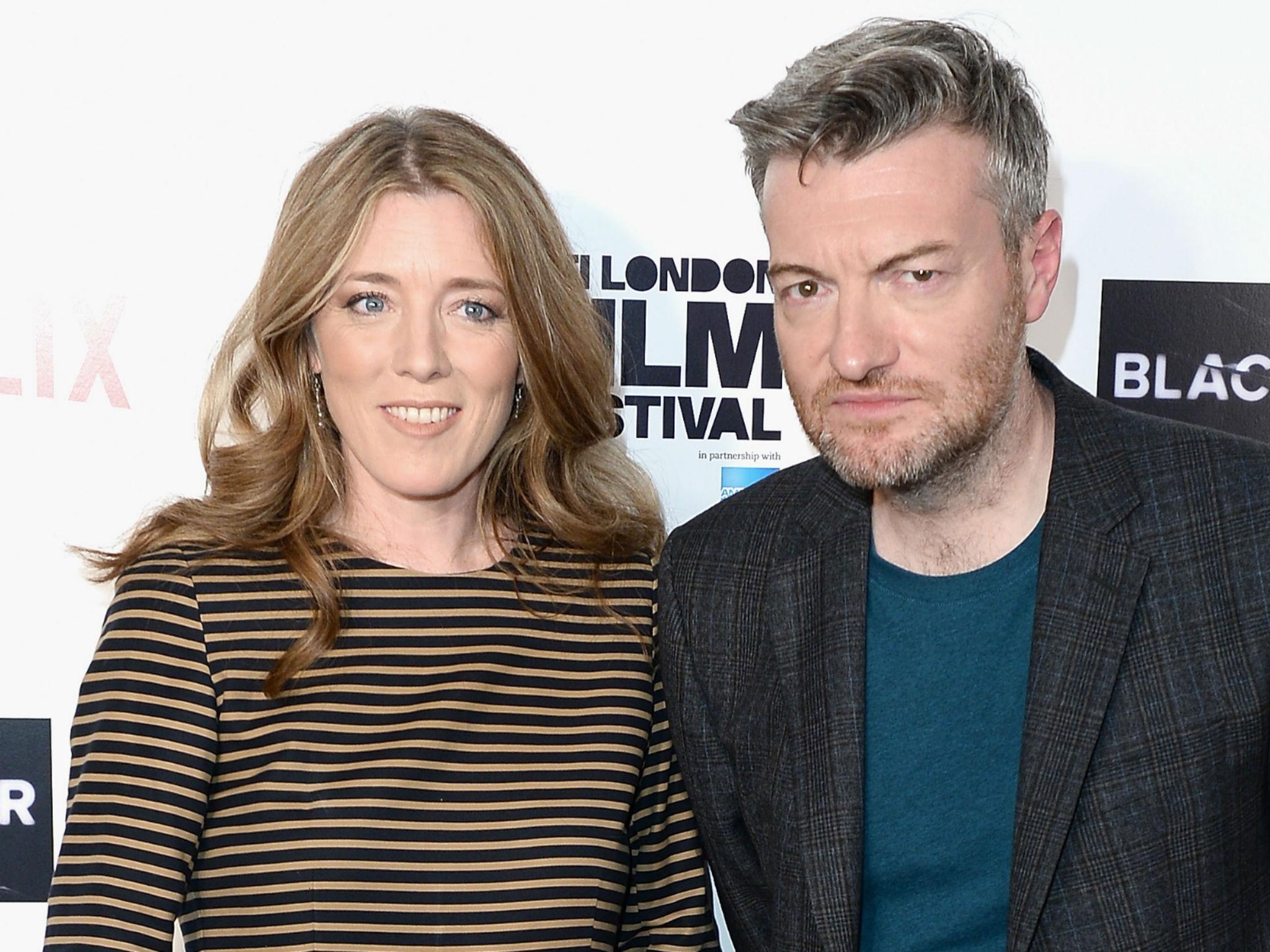
Giving lots of options to the viewer while keeping the main character consistent “was a huge nut to crack,” Brooker said. It was a five-week shoot for about two-and a-half hours of script, a much longer time than a typical episode requires.
Even now, he is uncertain about what he has made.
“I think some people will judge it just on a narrative basis, some people will judge it as a game,” he said. “It’s not up to us. It’s down to them.”
Jones disagreed. “It wasn’t really designed as a game. It was designed as a cinematic experience.”
“With game-y elements,” Brooker persisted. “You are making decisions. You are actively guiding it.”
The original conceit of “Bandersnatch” was that it would be an interactive show about an interactive game. That’s the central hook that made Brooker laugh, which is his litmus test for Black Mirror. Then he asks himself, “How can I make this not funny?” and a new episode is conceived.
Whatever its other merits, “Bandersnatch” is definitely not funny. Those who wish to encounter it unencumbered by any prior knowledge should employ a primitive method of interactivity and avert their eyes from the next two paragraphs.
The year is 1984, the setting London. Stefan (Fionn Whitehead, last seen in Dunkirk) lost his mother when he was five. He blames Dad (Craig Parkinson), who hid the boy’s stuffed toy. The ensuing ruckus made Mom take a later train, which derailed.
Stefan is hired by a game company. He adapts a choose-your-own-adventure story by a novelist named Jerome F Davies, who became convinced that he was trapped in a world of multiple realities, with spectacularly unfortunate results. Stefan’s life begins in some ways to mirror Davies’.
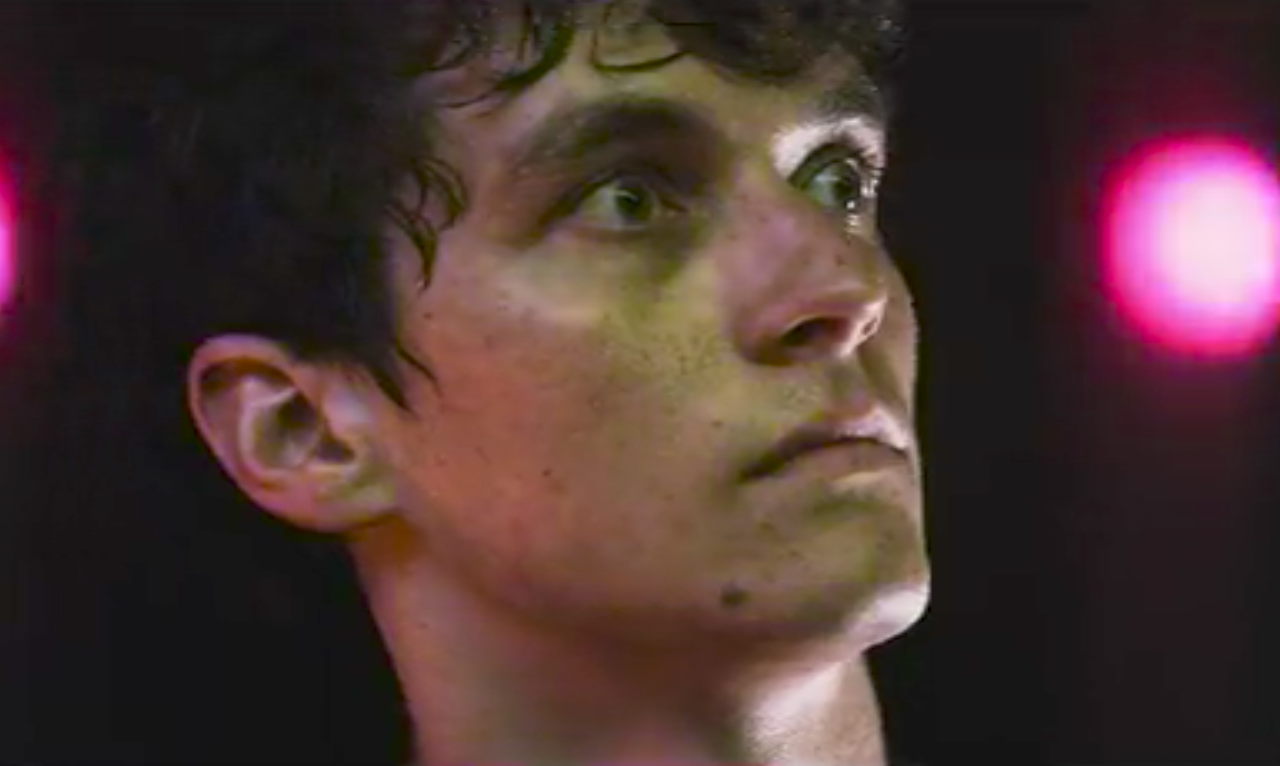
Plot choices in “Bandersnatch” come thick and fast at the bottom of the screen, with only a few seconds to click one of them. At one point, I refused to do anything, just to see what would happen. The episode went back to the beginning. It was not clear if this was a bug or I was being punished.
“Bandersnatch” is named after the elusive beast in Lewis Carroll’s Through the Looking-Glass, another tale of multiple universes, but is more directly a tribute to Philip K Dick (1928-1982), who wrote about shifting realities and believed in them, too. Colin (Will Poulter), Stefan’s mentor at the gaming company, has a poster on his wall of Dick’s 1969 novel Ubik, where the dead talk to the living, some of whom may be dead themselves.
Watching the episode, it is easy to see how interactivity could be the next step forward in entertainment. It is less easy to see how this could ever be art. It’s hard to lose yourself in a story if you’re constantly being pulled out of it. “Bandersnatch” is not linear, which made it feel unresolved even when I was offered the chance after about 70 minutes to go to the credits. I took instead the option to plunge back to the story and tried to make different choices.
“I don’t know how many endings there are,” Brooker said. “We don’t know what we’ve created here.”
Jones, who plays the stern adult to Brooker’s madcap boy genius, shot back: “Yes, we do!”
Brooker: “Sorry. We do.” But he didn’t sound convinced.
(A Netflix spokeswoman later clarified that “there are five main endings with multiple variants of each.”)
When making the show, the creative team had endless conversations about good endings versus bad endings or premium endings or five-star endings. Said Brooker: “There’s a Groundhog Day aspect where it keeps cycling around, deliberately so.” It’s an artist’s dream: a story the audience can never escape.
Interactive filmmaking is simple to mock. Are we now going to have Mary Poppins where the nanny dismembers the children with a hacksaw? Few artists are in favour of letting their fans make the decisions. But the technology is perpetually enticing.
In 1993, a 20-minute short called “I’m Your Man” seemed to offer real possibilities. Viewers in a handful of specially equipped theatres used a pistol grip attached to each seat to collectively vote on dozens of scene variations.
Bob Bejan, the scriptwriter, director and producer, said this was only the beginning. “In another year, you’ll see the pistol grip plus a seat with gyroscope motion control,” he told The New York Times. “Two years after that, it will be virtual reality, with the goggles and gloves.”
It was a prediction grounded in reality. Moviegoing was in decline, so multiplex owners were open to new approaches. A generation had grown up with a joystick in its hand and wanted to take control of its entertainment.
But the whole effort fizzled. “It was classic ahead-of-its-time technology,” said Bejan, who now runs experiential marketing at Microsoft.
Netflix is not making any predictions. Quite the contrary.
“In five years, 10 years, we’ll either say, ‘Wow, Black Mirror was a real turning point for interactive content,’ or we’ll be going, ‘That was another false start,'” said Yellin, the Netflix executive.
Still, he has great hopes. “We have our eyes and ears wide open to the creative community — writers, producers, directors — for more ideas that would leverage this art form,” he said. “What are the new storytelling conventions that can be invented? We’re meeting with people now.”
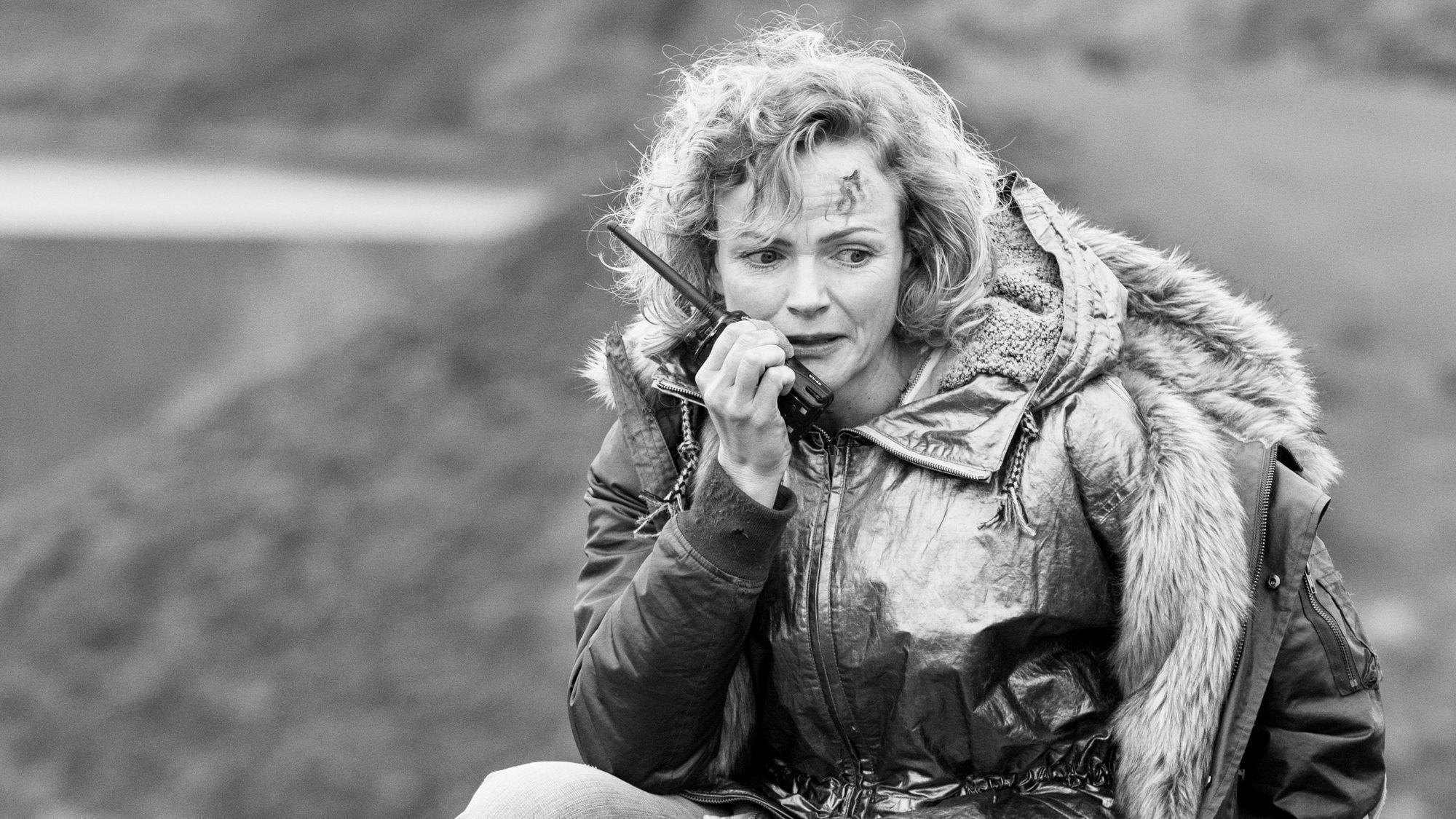
Netflix, which has 137 million worldwide subscribers, says “Bandersnatch” is available across “most” newer devices, including TVs, game consoles, web browsers and Android and iOS devices running the latest version of the Netflix app. It won’t work on Chromecast, Apple TV and some legacy devices.
Since Black Mirror is always full of tricks, it’s perhaps inevitable that “Bandersnatch” undermines the whole notion of interactivity. The viewer is asked whether a murder should be committed, and if the answer is yes, there is a further decision: Bury the body or chop it up? It’s not much of a choice, which is of course the joke.
“I’m not in control!” Stefan rages to his therapist. One path the viewer can take develops into a mocking plug for Netflix, which did not exist in 1984. This is about the fourth meta level “Bandersnatch” ascends, or descends, to.
“You think you’re choosing your ending, but are you?” said Russell McLean, a “Bandersnatch” producer. “Black Mirror is choosing your ending.”
Bejan, the interactive pioneer, had no knowledge of the existence of “Bandersnatch” when he was interviewed. But he said interactive filmmaking was less about the audience’s choices than it seemed.
“There’s a finite amount of media the filmmaker creates, which he slices and dices to give the illusion of control while at the same time guiding the viewer through the underlying blueprint,” he said. “It’s even more megalomaniacal than linear filmmaking.”
Which brings us to the data, where every story in tech ends up. Interactive filmmakers will take your preferences — I really want this character to commit murder, and that one can kill himself — and convert them into numbers that will guide the creation of new shows you will be programmed to find irresistible.
“We’ll see what resonates with audiences and what doesn’t,” Netflix’s Yellin said.
What Netflix is really building is a voting machine. It’s simple to see how technology like this could be used during, for instance, debates by presidential candidates. Viewers would react to promises being made, with their reactions immediately relayed to the candidates.
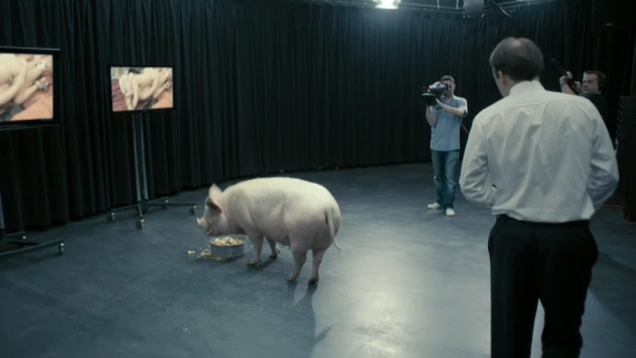
Black Mirror anticipated this sort of possibility in its very first episode. In 2011, “The National Anthem” posed the question, What if a British politician were forced to follow the whims of the public in real time? He would end up having sex with a pig on live television, of course.
“Bandersnatch” as a show is entertaining, but as a glimpse of the near future of technology it is horrifying. It is the grimmest Black Mirror yet, which is saying something for a series that, for its “Metalhead” episode, took the Boston Dynamics robot dogs and put them in a scenario where they hunt and kill people.
“Whatever path you take, there’s darkness ahead,” observed David Slade, who directed both “Metalhead” and “Bandersnatch.”
That is pretty much Brooker’s life philosophy. He began as a game reviewer, then became a TV critic, then a critic on TV. Black Mirror — named after the shiny objects on our desks, walls and all too often in our hands — anticipated the tech backlash.
“When we started doing the show, the general view of technology was a rosy one,” Brooker said. “I remember looking at Apple advertisements, and the imagery in them was so lovely. It reminded me of that sequence in Soylent Green where they show the old guy beautiful images of nature, just before they kill him.”
As Jones explained to Brooker: “You are naturally suspicious and paranoid and neurotic.”
“I worry about things, basically,” he said.
He is trying to dial back on technology. This is not easy or perhaps even desirable, because his confrontations with tech feed the show. That is one reason he got an Amazon Echo: research.
“Quite quickly my children, four and six, starting talking to it,” he said. “One of my kids walked into the room and called me Alexa. ‘Alexa — oh, Daddy, where are my shoes?’ I thought, ‘I have to kill that device.'”
“How would Alexa know where his shoes are?” Jones asked.
“Alexa probably does know where his shoes are,” Brooker said. “That’s the tragedy of it.”
Now that we’re all suspicious and paranoid and neurotic, at least about technology, Black Mirror is in flux. “We’re doing more optimistic episodes and stories, rather than just dystopian and negative ones,” Brooker said. “We want to keep the show interesting for us.” He and Jones were, however, extremely hazy on when the next episodes would arrive. “Bandersnatch” consumed all their attention for a year.
One thing is clear, though. The new episodes won’t be interactive. Asked if he had any advice for someone who wanted to try the format, Brooker said in a joking-but-not-really tone: “Run away. It’s harder than you think.”
© The New York Times
Join our commenting forum
Join thought-provoking conversations, follow other Independent readers and see their replies
Comments